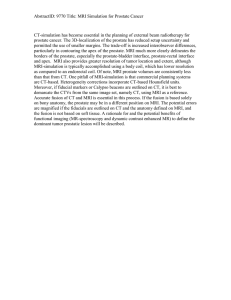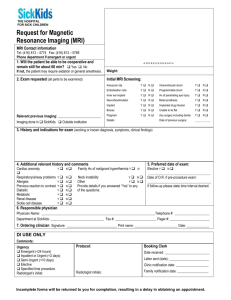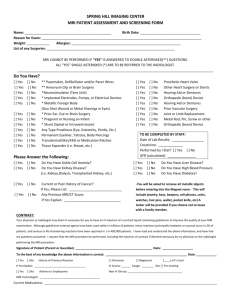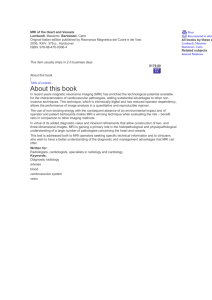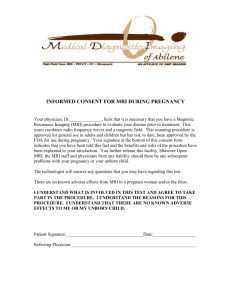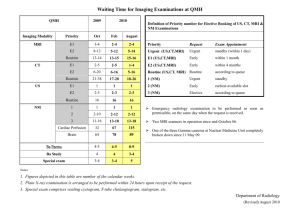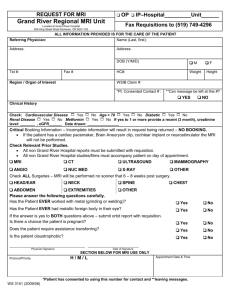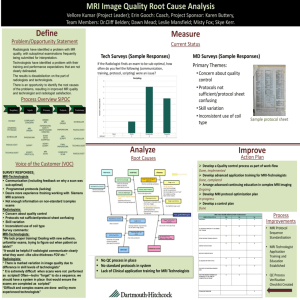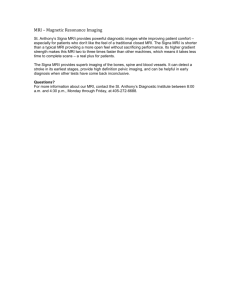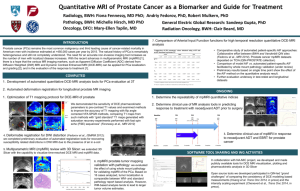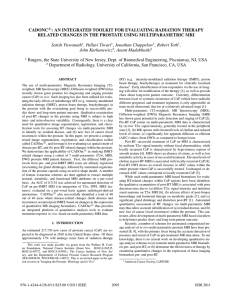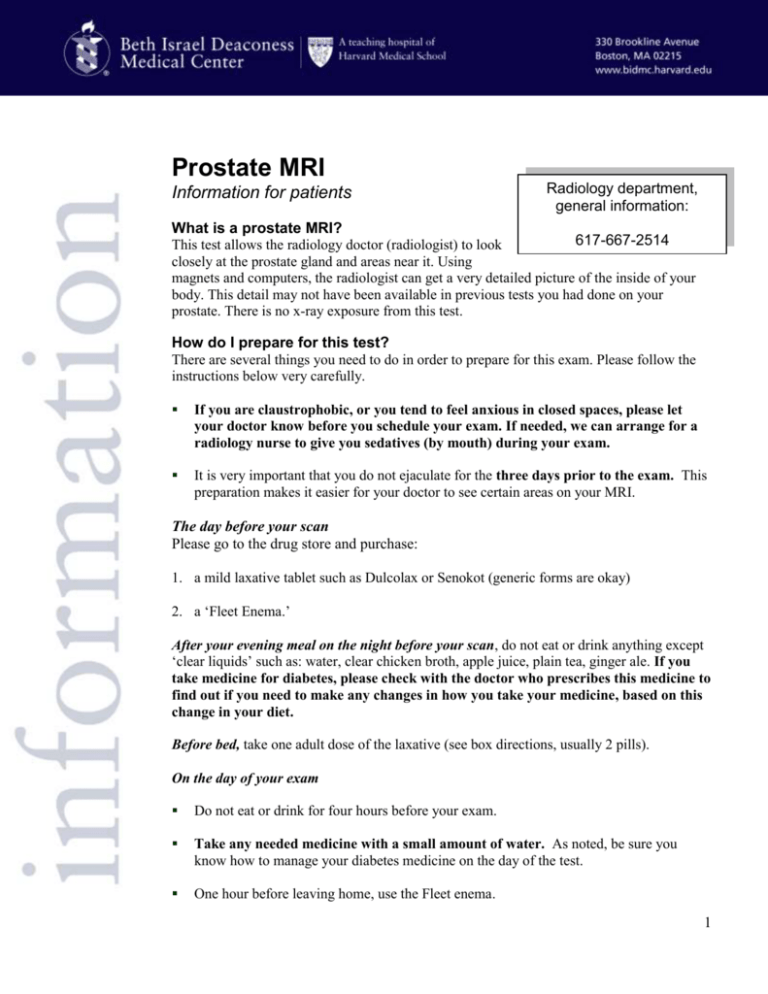
Prostate MRI
Information for patients
Radiology department,
general information:
What is a prostate MRI?
617-667-2514
This test allows the radiology doctor (radiologist) to look
closely at the prostate gland and areas near it. Using
magnets and computers, the radiologist can get a very detailed picture of the inside of your
body. This detail may not have been available in previous tests you had done on your
prostate. There is no x-ray exposure from this test.
How do I prepare for this test?
There are several things you need to do in order to prepare for this exam. Please follow the
instructions below very carefully.
If you are claustrophobic, or you tend to feel anxious in closed spaces, please let
your doctor know before you schedule your exam. If needed, we can arrange for a
radiology nurse to give you sedatives (by mouth) during your exam.
It is very important that you do not ejaculate for the three days prior to the exam. This
preparation makes it easier for your doctor to see certain areas on your MRI.
The day before your scan
Please go to the drug store and purchase:
1. a mild laxative tablet such as Dulcolax or Senokot (generic forms are okay)
2. a ‘Fleet Enema.’
After your evening meal on the night before your scan, do not eat or drink anything except
‘clear liquids’ such as: water, clear chicken broth, apple juice, plain tea, ginger ale. If you
take medicine for diabetes, please check with the doctor who prescribes this medicine to
find out if you need to make any changes in how you take your medicine, based on this
change in your diet.
Before bed, take one adult dose of the laxative (see box directions, usually 2 pills).
On the day of your exam
Do not eat or drink for four hours before your exam.
Take any needed medicine with a small amount of water. As noted, be sure you
know how to manage your diabetes medicine on the day of the test.
One hour before leaving home, use the Fleet enema.
1
What happens during the test?
First, we will ask you to fill out some papers. Then you will change into a hospital gown
for the test.
A technologist will explain the exam in detail and will answer any questions you may
have about your exam.
You will also have an intravenous (IV) line started. The IV will be used for MRI contrast
(dye) that will be injected during this test.
In order to obtain the pictures, we need to use a special antenna called an “endorectal
coil.” This will be placed gently into your rectum by a radiologist or a nurse practitioner.
This can cause a sensation similar to having a bowel movement.
Once the coil is in place, you will be given an injection (shot) in your arm, called
glucagon. This is a hormone your body produces naturally. It helps your intestines to
relax and makes the pictures more clear. **Glucagon affects your body’s blood sugar.
Please remind us if you are a diabetic, and we will talk to you about special instructions
you may need following your test.
You will then slide into the MRI scanner. The exam lasts approximately an hour.
Will it hurt?
You may feel some discomfort when the endorectal coil is inserted, but this only lasts a
moment. We use a lubricant that contains a medicine to help lessen discomfort. Once the
coil is in place, you may feel pressure but, you should not feel any discomfort. Most men
report that this exam is not overly uncomfortable.
How will I feel afterwards?
You should feel fine, with no after-effects from the MRI.
You will be given a ‘snack pack’ which you should eat before leaving the unit.
You will receive additional instructions about your care, including information on the
effects of the glucagon injection. Be sure to ask any questions you may have.
How will I learn the results?
A radiologist will review the results with your doctor, who will then explain them to you.
If you have further questions, please call:
MRI nurse practitioner at 617-754-2092
or
Senior MRI Technologist at 617- 754-2084
This material was prepared by clinicians from the department of radiology at Beth Israel Deaconess Medical Center. It is produced
and distributed by the Beth Israel Deaconess Learning Center. © 2011, Beth Israel Deaconess Medical Center. All rights reserved.
MC0166, Rev. 06/11
2

